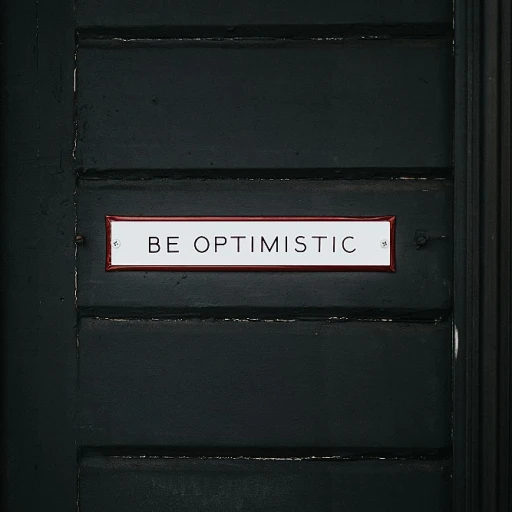
Understanding the Importance of Fair Hiring Practices
Recognizing the Significance of Just Hiring Practices
In the current landscape of recruitment and employment, the push towards fair hiring is more crucial than ever. A fair hiring approach ensures that every applicant, irrespective of their background, has an equal chance to compete for available jobs. This initiative is not just a social responsibility but a strategic move for employers looking to enhance their brand image. For employers, adopting anti-discrimination measures and fair chance policies can significantly influence how their brand is perceived. It positions them as forward-thinking and inclusive, attracting a diverse pool of talent. Federal and state local laws have been strong advocates for fair employment practices, with agencies like the EEOC actively working to eliminate discrimination during the hiring process. Employing such practices is undeniably beneficial for recruitment agencies seeking to uphold equal employment principles. The need for agencies to integrate fair hiring practices is not just about compliance with discrimination laws or avoiding complaints. It's about building a reputable hiring agency that prospective applicants can trust and believe in. This involves implementing measures such as pre-employment background checks to ensure a non-biased hiring process. By doing so, agencies can lay a solid foundation for building trust and respect within their respective industries. For those seeking to understand how to craft an effective strategy in this evolving domain, exploring resources like creating a brand launch strategy for employer branding can provide valuable insights.Current Trends in Employer Branding
Shifting Paradigms in Employer Branding
In today's competitive job market, employer branding has evolved significantly. Companies are increasingly recognizing the importance of fair hiring practices as a cornerstone of their brand identity. This shift is driven by several key trends that are shaping how employers attract and retain talent.
Focus on Inclusivity and Diversity
One of the most prominent trends is the emphasis on inclusivity and diversity. Employers are now more aware of the need to create a workplace that is welcoming to individuals from all backgrounds. This means implementing anti-discrimination laws and ensuring equal employment opportunities for all applicants. Federal agencies and state local bodies are playing a crucial role in enforcing these practices, making it essential for hiring agencies to comply with these regulations.
Transparency in Hiring Practices
Transparency has become a key element in the recruitment process. Applicants are looking for clear communication from employers regarding job roles, expectations, and the hiring process itself. This transparency helps in building trust and ensures that all candidates have a fair chance to compete for jobs. Companies that adopt transparent practices often find themselves with a stronger employer brand.
Integration of Technology
Technology is transforming how employers approach recruitment. From using AI to streamline the hiring process to implementing systems that ensure fair chance hiring, technology is a game-changer. Employers are now using advanced tools to conduct background checks and pre-employment assessments, ensuring that they adhere to fair hiring practices without compromising on quality.
Addressing Challenges and Complaints
Another trend is the proactive approach to handling complaints related to discrimination and unfair practices. Employers are setting up mechanisms to address these issues promptly, demonstrating their commitment to fair hiring. This not only helps in resolving issues but also enhances the employer's brand image.
For those interested in further exploring how these trends influence employer branding, consider crafting an effective thought leadership strategy to stay ahead in the competitive landscape.
Challenges in Implementing Fair Hiring
The Roadblocks to Achieving Fair Hiring
Creating a fair hiring agency involves navigating a myriad of challenges, particularly when attempting to implement equitable practices. Employers must ensure that they follow discrimination laws, such as those imposed by federal agencies, to avoid accusations and complaint filings with the EEOC. Many agencies find themselves in a legal crossword puzzle as they try to balance compliance with employment laws while striving for fair chance processes.
A significant challenge is the avoidance of discrimination during the hiring process. Applicants must be given an equal opportunity to compete for jobs, regardless of their background. Fair hiring becomes more complicated when considering issues like criminal history and the necessity of background checks. Compliance with state and local laws adds layers of complexity to these lists of hiring practices, influencing how hiring agencies operate.
The necessity of adjusting to equal employment laws also adds particular challenges. The constant updates and changes to these laws require federal agencies to notify employers within a set number of calendar days, challenging hiring agencies to maintain timely adaptations in their policies.
Moreover, many companies struggle with the integration of technology in recruitment, which is essential for streamlining hiring practices and ensuring employee retention. However, technology should not overshadow the human element crucial in employment decisions which can provide a more nuanced understanding beyond what standard algorithms might suggest.
Strategies for Building a Fair Hiring Agency
Implementing Effective Strategies for Inclusive Hiring
Creating a fair hiring agency requires a combination of strategic planning, comprehensive policies, and a commitment to inclusive practices:- Develop Clear Anti-Discrimination Policies: Establish strong guidelines that align with federal and state local discrimination laws to ensure every applicant, regardless of background, has a fair chance. Consider frequent updates and training sessions for hiring staff to remain compliant and aware of evolving employment laws.
- Enhance Recruitment Processes: Review current recruitment and hiring processes to remove any obstacles that might inadvertently screen out qualified candidates. Implement fair hiring practices without dismissing quality. Incorporate anti-discrimination measures throughout the hiring process, including initial job postings.
- Practice Equal Employment Opportunity (EEO) Standards: Adherence to EEOC guidelines is crucial for fair chance employment. Implement blind recruitment to prevent bias. Background checks should comply with both federal and state laws, respecting applicants’ rights and privacy.
- Create a Diverse Interview Panel: Having a diverse group of interviewers can help ensure that candidates from various backgrounds feel welcomed and assessed fairly. This approach minimizes the likelihood of a homogeneous viewpoint dominating the decision-making process.
- Monitor and Analyze Outcomes: Devise systems to regularly monitor recruitment outcomes. Use this data to identify any patterns of discrimination or bias and address them promptly. This can involve simple metrics such as tracking complaint percentages or more complex agcy crossword clue analysis regarding applicant diversity and selection rates.
- Engage with Community Resources: Collaborate with community organizations and federal agencies to understand employment obstacles faced by underrepresented groups. This knowledge is vital in creating a more inclusive hiring agcy environment.













